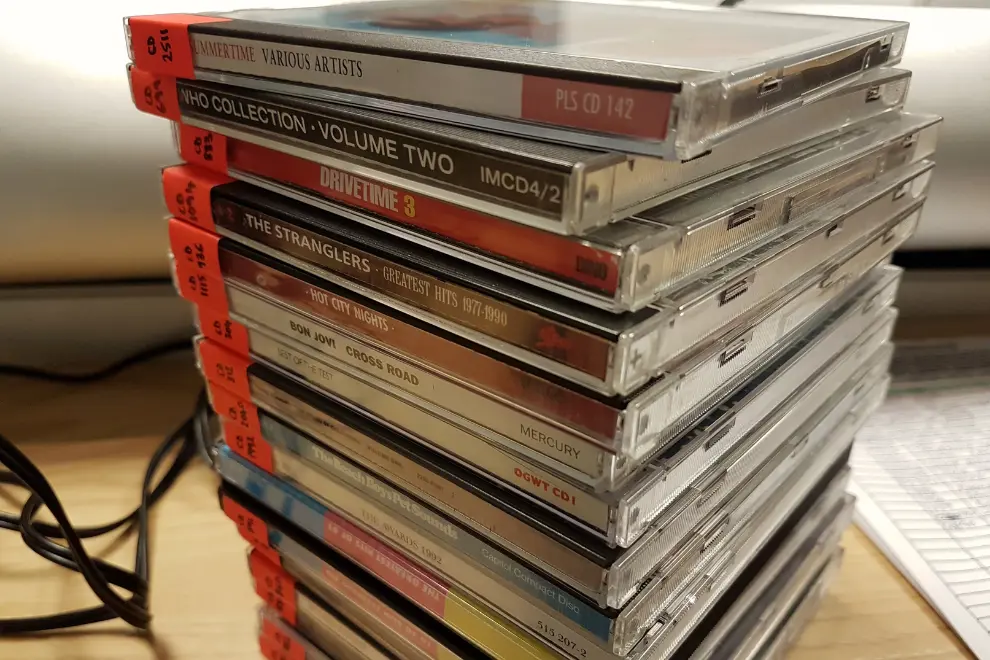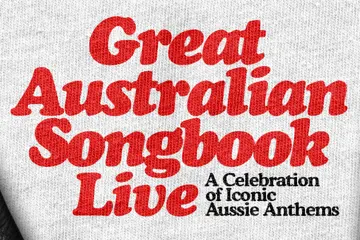Indie acts and labels who find it difficult to cut into the noise of streaming services are coming up with alternate marketing strategies.
Giving away CDs online has a polarising effect. Some in the indie sector argue it merely fuels the belief, held by some consumers, that they should not have to pay for music. Some surveys show that up to 60 percent of people feel this way. Instead, they suggest, free CDs should be used as a one-track ‘thank you’ to loyal fans, or as giveaways with concert ticket and merchandise.
But artists who do use it say free CDs help them find new audiences, and create a buzz around a record release, upcoming tour or new merchandising range.
“CDs are inexpensive to make, and people do want them,” says Travis Velthoven of Melbourne band Big League. “It’s obvious people want something they can hold in their hands. I did a marketing course which showed me that Meta/Facebook and Instagram are strong tools for promotion, provided you use it properly. It goes down extremely well with people and inspires them to follow you further down the track.”
Guitar Band
Coinciding with the January launch of a new music video, the guitar band went on Meta to give away 500 copies of their 11-track debut album, I Thought Thunderbolt, through their website. All 500 were snapped up and Big League broke even. Comments on Meta told Velthoven, his wife Marie, Dave Soetman and Danny Crynes that these were first-time listeners who were impressed with the songs.
“More often than not,” Velthoven relates, “it’s the younger audience which took up on the offer. I can only put it down to the fact the kids are inheriting their parents old cars, which had CDs players in the dashboard. You can’t plug in your Spotify, so they can’t wait to go for a drive and hear music on CDs.”
Don't miss a beat with our FREE daily newsletter
What’s more, these fans are pre-ordering their next album, Heathen Sound – which is due out on April 22 – at full price. This has never happened for them. Fans are reaching out to ask about upcoming singles or concerts. This is timely, as the band are embarking on a tour through Australia and New Zealand.
Create Momentum
For Australian bands who give away free CDs, the whole idea is to create momentum, build up the size of their venues and make money out of tours.
For Big League, a 2018 trip to South By Southwest in Texas was no game-changer for their career. But they met college radio executives and indie labels, with whom they hooked up on later visits to America, and got them the chance to contribute a track to a just-released tribute album for The Clash.
Velthoven cites overseas platform Indepreneur, which offers various marketing ideas at cost, and has testimonials on its site about how effective they were.
Fast-rising Perth band Cloning was another which used Indepreneur for Nervous Kid. They sold 3,000 CDs in 2023, and had their track Finite Grace reach 20,000 streams in its first three weeks of release. The indie, trip-hop and shoegaze outfit generated 1.5 million streams on How Could You Ever Think I Hated You?, sold out shows in Brisbane, Melbourne and Perth, and caught the eye of festival promoters.
Media Support
The act of giving away CDs often generates media support. Some years back, London-based band The Crimea gave away free downloads of their self-funded second album, Secrets Of The Witching Hour, after they were dropped by Warner Music. A Radio 1 presenter, for instance, spruiked the campaign by playing a track from the album each week.
The band’s manager, Stephen Taverner, stated the whole idea was to open the band “to a wider audience and make more money from live income”. He added, “The other thing that’s important is that all of this is irrelevant if the music isn’t any good.”
Nine Inch Nails’ manager, Jim Guerinot, additionally warned Billboard that the free model would only work for acts that already had a substantial fan base. Nine Inch Nails, The Charlatans and McFly took the lead from Radiohead, who famously released In Rainbows on a pay-what-you-want basis in 2007 – a move called “courageous and inventive” by Bono and “genius” by Jay-Z.
According to market research firm Comscore, downloaders paid an average of $2.26 per download globally, and 62 percent of downloaders paid nothing. Of those who paid, the average was $6 globally, with 12 percent paying between $8 and $12, around the typical cost of an album on iTunes.
Down The Path
The three went down the path after parting from their respective labels, and did so as a present for fans.
Nine Inch Nails gave away nine tracks from the instrumental album Ghosts I-IV, via both their website and The Pirate Bay. Fans were also given the option to spend $5 for a digital version of all 36 tracks, $10 for a double-CD, $75 for a deluxe edition or $300 for an ultra-deluxe edition that included a vinyl version and Trent Reznor's autograph.
Guerinot told Billboard that some fans preferred to buy the offering. There were 781,000 transactions in the first week, including free and paid downloads and physical pre-orders. All 2,500 copies of the $300 limited-edition release sold. Sales through nin.com topped $1.6 million in the first week, and first-day digital sales though Amazon totalled $1 million.
The Charlatans partnered with UK radio station XFM to deliver You Cross My Path, which was downloaded 60,000 times first week.
McFly gave away Radio:ACTIVE as a cover mount on the Mail On Sunday newspaper, which had reported an extra 600,000 copies sold (up to 2.8 million) when Prince’s Planet Earth was delivered in a similar way. At the time McFly’s guitarist and singer Tom Fletcher said, "We want to get our music out to the widest audience possible and working with a massive paper like the Mail On Sunday will definitely help us achieve that. We're very excited about this great opportunity. Setting up our own label allows us to rip up the rulebook and find new ways of reaching an audience."
Chance The Rapper had another reason, telling Jimmy Fallon on The Tonight Show, “As music grows, there’s always new ways to releasing... There’s so many ways music moves around now that trying to fit it into a ‘for sale album’ is obsolete now.”
CD sales continue to drop in Australia, down in 2022 by 17 percent. But the experiences of acts like Big League and Cloning show that thirsts for new music and discovering new acts are as strong as ever.
But there are always problems to watch out for. Earlier this year, The New York Times told the sad tale of Washington DC folk duo Bad Dog. They wanted to print up a CD of their 2023 album The Jukebox Of Regret to give away at a house party they were playing in December. What was posted on SoundCloud suddenly turned up on other streaming services, but with song titles changed and attributed to phantom artists.
When the CD manufacturer they hired did a routine due-diligence check before pressing up, they got a surprise. The New York Times reported: “They ran the metadata of the songs – their digital fingerprints, essentially – through a program designed to determine if they were originals. They were not, the program reported. Whoever had pirated the tracks had commandeered their digital fingerprints, too.”
















